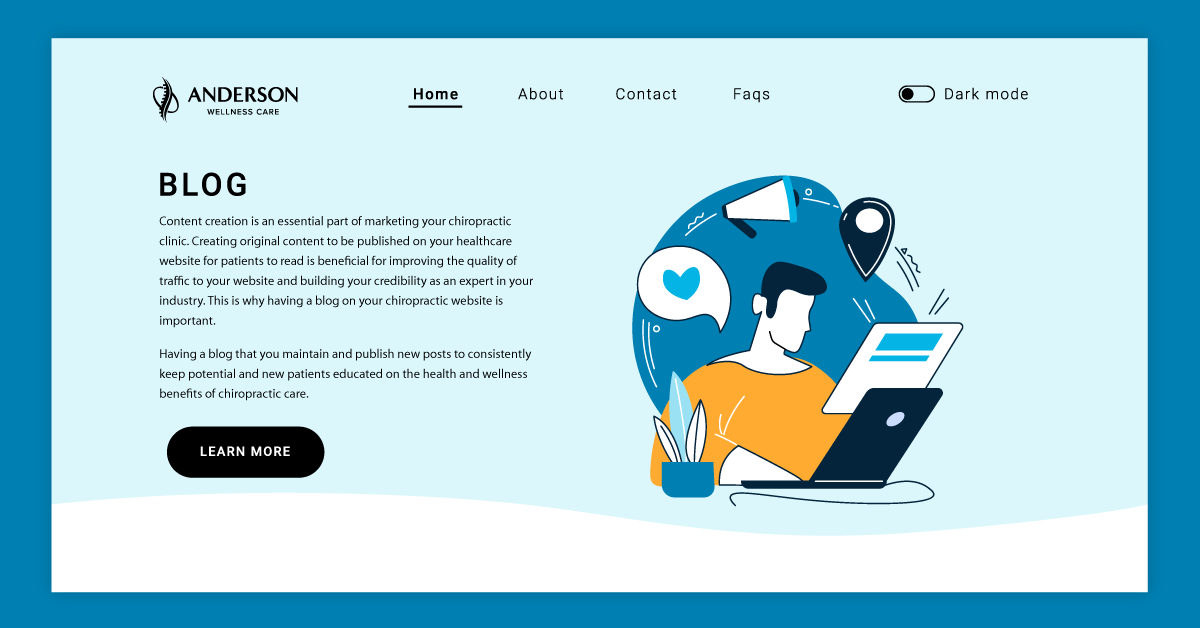Debunking 5 Common Content Marketing Myths
With access to so much information right at our fingertips, misinformation is a common occurrence. It can be easy to find information online and trust it as facts even if it may not be true.
Myths have been part of our society for thousands of years as people continue to tell them and pass down these stories from person to person. This goes for content marketing as well.
There is so much information present about content marketing that it’s difficult to decipher what’s real and what’s not. While some of it is actually helpful for putting a proper plan into fruition, much of the rest can be discounted as false.
But don’t worry, we’re here to help! Continue on as we debunk 5 common content marketing myths.
5 Content Marketing Myths Debunked
Myth #1: Only some industries benefit from content marketing
You may have heard this one before because it is a belief that is all too familiar. Some people believe that you have to be in certain industries to get a successful ROI with content marketing. It is not industry-specific and is not better for one type of business versus any other. When done correctly, it is a very effective strategy used by digital marketers and can benefit any sort of business.
Whether you’re the owner of a veterinary practice or an eye care practice, it’s possible to see the advantages of utilizing this form of marketing as a way to increase business. The objective is to distribute quality content that is relevant and valuable to your customers. It can work for you just as it does any other brand or organization.
Businesses in any trade have the opportunity to create content that people will love and help to persuade them into using their products or services because of it. For your marketing plan to be successful, you have to understand what your target audience wants and learn the best ways to communicate with them.
Provide a clear and concise message and give your consumers something useful so that your marketing efforts can easily transform into higher conversion rates.
Myth #2: Quantity over quality
 This myth is one that seems to continue to plague businesses and actually have them believe that the quantity of content that you produce is more significant than the quality of it. This is easily refutable.
This myth is one that seems to continue to plague businesses and actually have them believe that the quantity of content that you produce is more significant than the quality of it. This is easily refutable.
Just because you are constantly releasing more and more content on the web does not mean that it is actually GOOD content that will be of value to someone. Now, it is important that you stay consistent and post on a schedule that you can stick to in order to maintain a relationship with your customers but you have to decide when it’s too much.
Posting daily is generally a good rule of thumb to follow as long as it’s not information overload. For example, uploading six blog entries a day about different topics can be confusing to your consumers and ultimately damage the message you are trying to convey. Know when the quantity of your work is affecting its quality and what you can do to change that.
You should want the information you produce to have a lasting effect on your readers and viewers. What type of impact did it have on them? Did they forget about it in a matter of seconds, or were they contemplating what you said for the rest of the day?
Answer these questions honestly and if you think you may be producing too much content that no one thinks twice about, you may want to reevaluate your strategy.
Myth #3: All content should be long
In the digital marketing realm, it is common knowledge that longer content generally does better among audiences. But, it’s important to note that everything you create does not have to be long-form. Certain content should be short, sweet and to the point. You shouldn’t add unnecessary information in your posts just so you can reach a specific word count or page length.
When people click on your website and your homepage appears, it doesn’t have to contain loads and loads of information. It should just clarify who you are as a brand and what you can provide for customers.
Now, as far as being as optimal as possible for SEO, some content will have to be longer than others.
According to the Search Engine Journal, the average length of page one results is 1,900 words.
Does that mean that your content always has to be that long? No, but things such as blog posts or articles should probably have a bit more substance to them compared to other things you publish.
But the key factor to remember is to give your target audience what they’re looking for. Even if your content may not reach a specific word count, if it conveys exactly what you want to your consumers and they enjoy, you’ve done your job.
Myth #4: Anyone can create quality content
 You may think that this myth is obviously not even close to accurate, but many people believe that it’s so easy, anyone can do it.
You may think that this myth is obviously not even close to accurate, but many people believe that it’s so easy, anyone can do it.
A great content creator is knowledgeable about industry-specific information and can communicate that well with your audience. Anyone can write content, but the true test lies within finding someone that can do it so well that it inspires or teaches your readers something.
They also understand your brand and what you want consumers to know about who you are and what you have to offer and will authentically communicate that with people.
If you want to dive into more complex topics, look into finding professionals that can do the job or someone who truly knows the industry. They should be a respectable authority figure that people trust to give them the correct information.
Myth #5: You’ll receive instant gratification
I believe this one speaks for itself as most people know anything about owning a business is not easy and almost never involves receiving instant success. Just like with any other type of marketing, it takes time and patience.
Even if you are creating amazing content, it may take some time before you see your website come up on the first page of Google’s SERP. But, that doesn’t mean give up. Continue to make things that you think your clients would enjoy or find helpful. Write that blog post, design that infographic, create that content download.
These content marketing myths have officially been busted
So, now that we’ve uncovered the truth about some common misconceptions about content marketing, it’s up to you to use this information to plan a foolproof strategy that will attract the most customers for your business. No matter what industry you’re in, just remember that content marketing is storytelling about your brand and no one can tell your story better than you.
If you need more help and information on how to market for your company, check out these resources
How to Tell a Story Through Content Marketing
The Importance of Maintaining Consistency in Your Content Marketing
Why Content Marketing Matters



